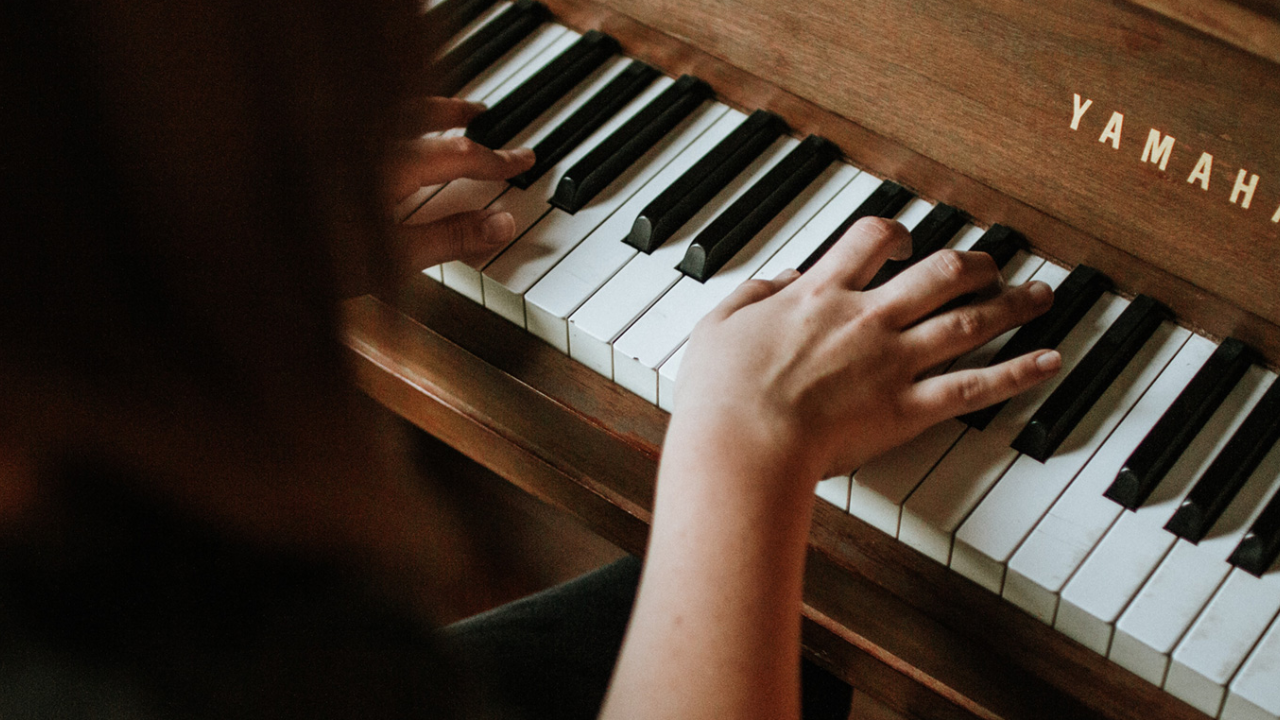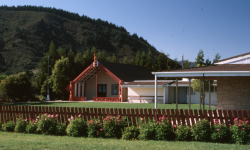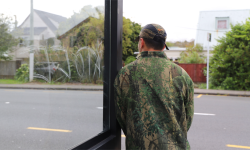
I love hymns. They can shape oneu2019s heart and give voice to distress or joy. I was charmed to find out that A H Reed, publisher and New Zealandu2019s grand old man of walking, would fling the window wide every morning and sing a hymn. I have no doubt that at times he sang u201cNow Thank We All Our Godu201d through the window of his home in Mornington, Dunedin.
Towards the beginning of lockdown I remembered this hymn and realised that it accords entirely with the theme of thanksgiving in the midst of a pandemic (1 Thessalonians 5:8 u201cIn everything give thanks...u201d) that we at Dunedin City Baptist Church were being challenged to adopt.
The author of the hymn, Martin Rinkart, was born in 1586 in the walled city of Eilenburg, Saxony, Germany. Despite coming from a poor family, he attended school, delighting in music and learning. He later studied theology at the University of Leipzig. After a short spell as minister of the church at Eisleben, the famed birthplace of Martin Luther, he returned to his home town, becoming archdeacon of the Eilenburg Lutheran Church at the age of 31. This was the year the Thirty Yearsu2019 War broke out, ravaging the country.
Unexpectedly, Rinkart found himself ministering in the u2018worst of timesu2019. Political refugees flocked to Eilenburg in droves, seeking asylum within its stout walls. They then had to be fed and accommodated. This led to overcrowding and an unprecedented squeeze on resources. The Austrian and Swedish armies overran or besieged the city, pillaging and laying waste. Then, most grievously, in 1637 the plague came to Eilenburg, and people, already weakened and discouraged, succumbed in enormous numbers.
What does a minister do in a drastic time like this? Well, this minister, Rinkart, remained faithful at his post for the duration of the war, a fabulous example of Eugene Petersonu2019s u201clong obedience in the same directionu201d. The only surviving pastor in the town, he helped nurse the sick, prayed with the dying and conducted scores of funerals (nearly 5,000 altogether). In the year 1637 some 8,000 people died and, heartbreakingly for him, Rinkartu2019s own wife was one of them. Throughout, remarkably, he was known for his upright good cheer.
At one stage the Swedish army demanded a large tribute payment from the town. Rinkart pleaded for a reduction. The Swedish commander refused. Rinkart turned to his parishioners and said, u201cCome, my children, we can find no mercy with this man. Let us take refuge with God.u201d Rinkart prayed. The Swedish commander, thoroughly moved by Rinkartu2019s devoutness, promptly lowered the tribute payment.
The war eventually ended but the suffering didnu2019t. The hostilities had prevented people from doing their usual farming work, and there was therefore no food. Famine followed, so bad that u201c30 or 40 people might be seen fighting in the streets for a dead cat or crow.u201d Proper recovery was slow in coming to the city, the ongoing distress of the populace obvious. Apparently people would stand outside Rinkartu2019s house, imploring him to help them. That he did, with the limited resources he had.
Rinkart believed in the inspiration and comfort of hymn singing and wrote some 66 hymns altogether. No one knows exactly when he penned u201cNow Thank We All Our Godu201d, but it was probably towards the end of the war. Itu2019s likely that it began as a family prayer before meals, eventually assuming prominence in Germany as the u201cTe Deumu201d, the hymn sung on occasions of national thanksgiving.
Itu2019s remarkable, when one examines the hymn closely and remembers the context in which it was written, how absent are words of complaint at the many trials faced. Indeed, the words are exclusively ones of thankfulness, calm repose and trust. I read that Rinkart composed the hymn for the survivors of the city, and that he knew thereu2019s u201cno healing without thanksgivingu201d. Indeed, the theme of his life until it ended in 1649, the year after hostilities came to an end, was that the providence of God is always good.
Here are the words, as translated by Catherine Winkworth in 1858. (The usual tune is u201cNun Danketu201d.)
Now thank we all our God
with hearts and hands and voices,
who wondrous things hath done,
in whom His world rejoices;
who, from our mothersu2019 arms,
hath blessed us on our way
with countless gifts of love,
and still is ours today.
O may this bounteous God
through all our life be near us,
with ever joyful hearts
and blessed peace to cheer us,
and keep us in His grace,
and guide us when perplexed,
and free us from all ills
in this world and the next.
All praise and thanks to God
the Father now be given,
the Son and Him who reigns
with them in highest heaven:
The one eternal God,
whom heaven and earth adore;
for thus it was, is now,
and shall be evermore.
Contributor: Jenny Beck
Jenny has worked in the legal field for more than 30 years and is the sole principal of Jenny Beck Law. She is mum to eight sons and is involved in various ministries at Dunedin City Baptist Church.
References:
- Kenneth W Osbeck, 101 Hymn Stories (Grand Rapids: OM Books, 1982).
- Elsie Houghton, Christian Hymn-Writers (Mid Glamorgan: Evangelical Press of Wales, 1984).
- Kathleen Blanchard, Stories of Popular Hymns (Grand Rapids: Zondervan).


